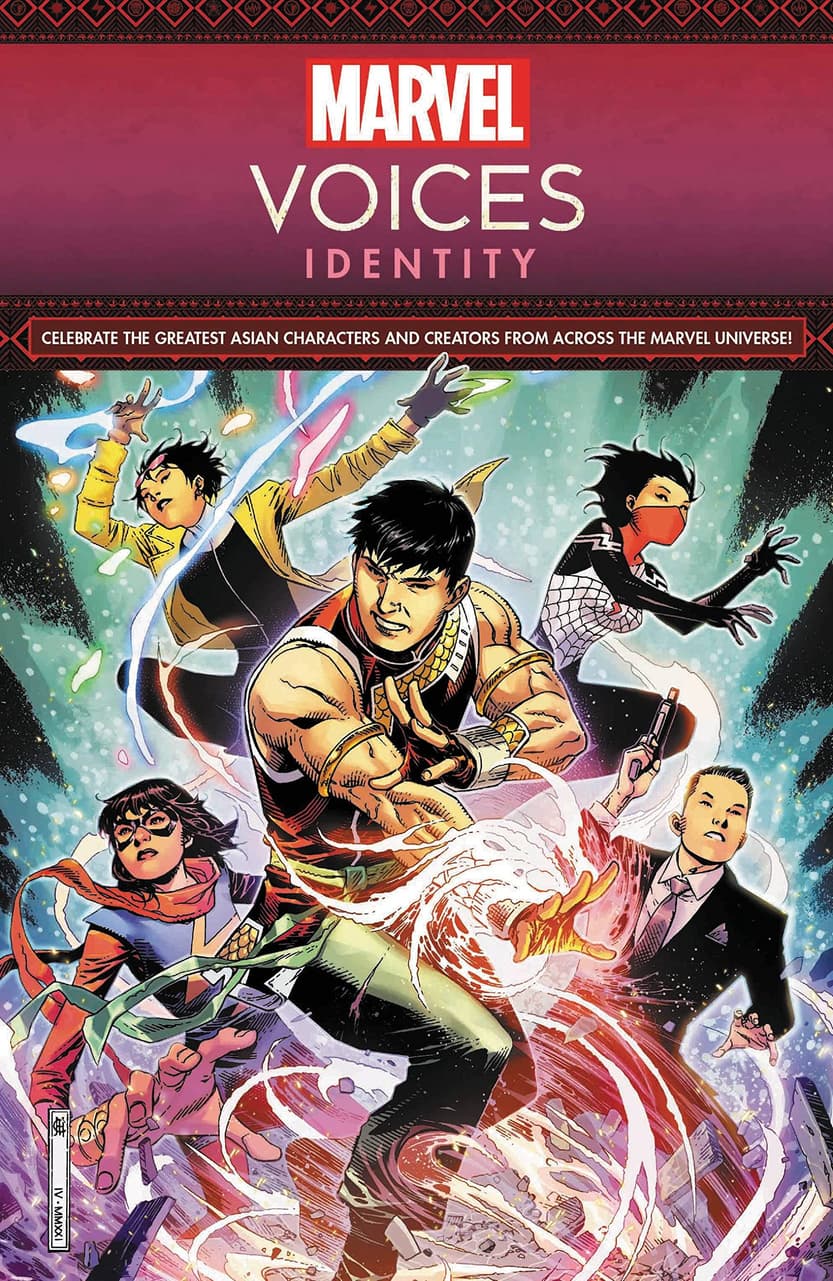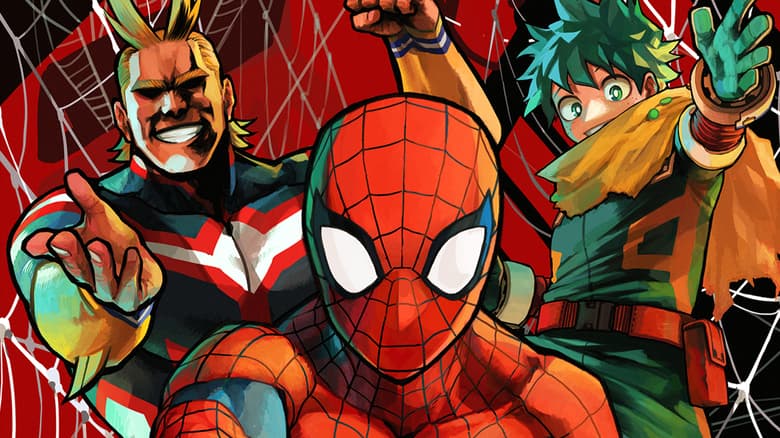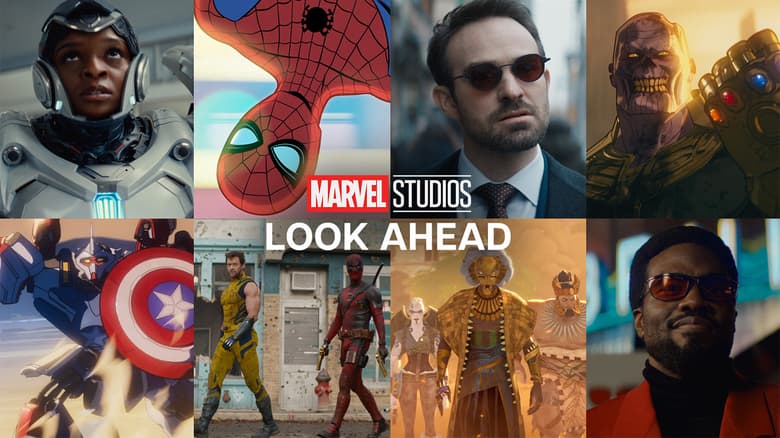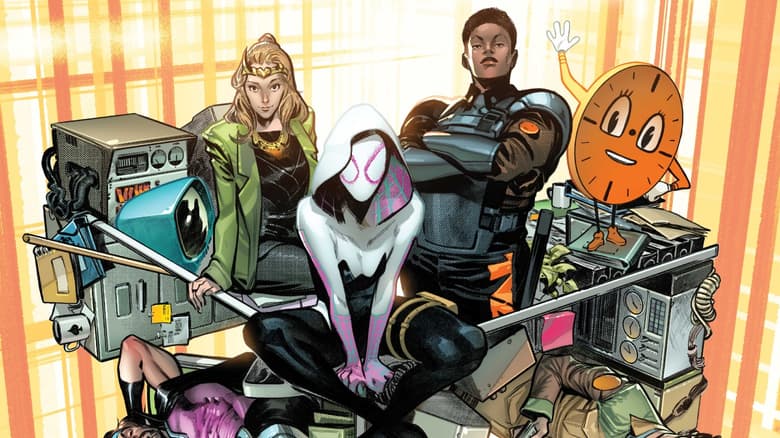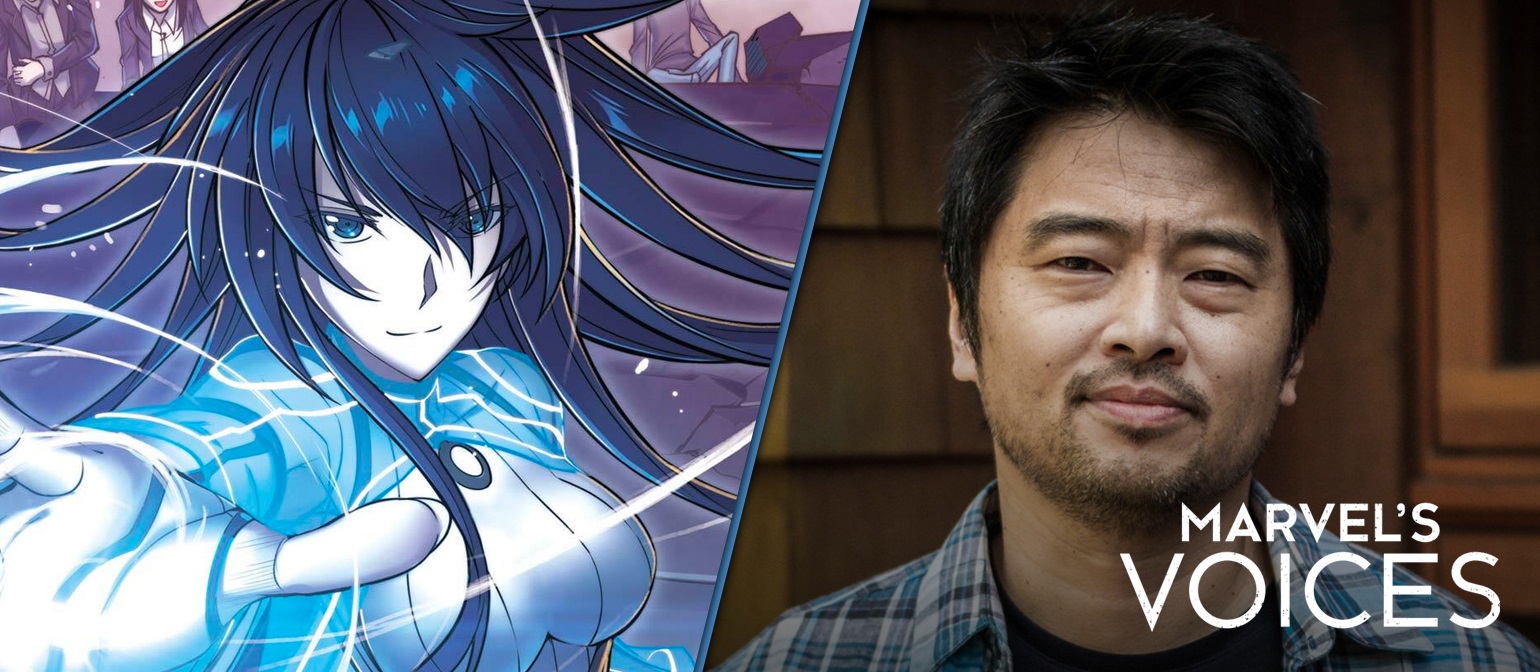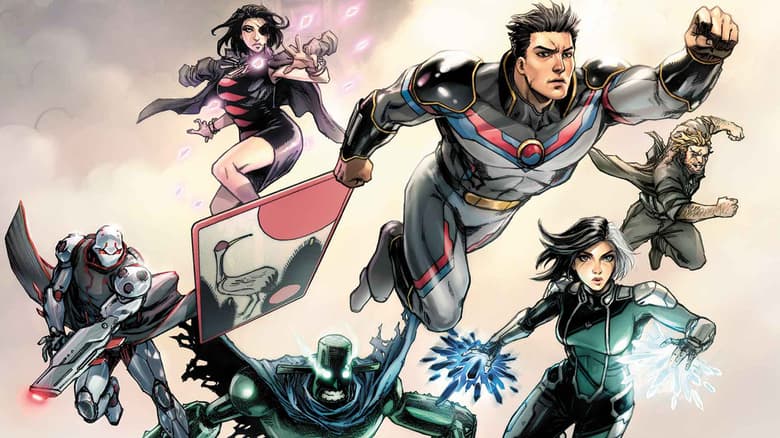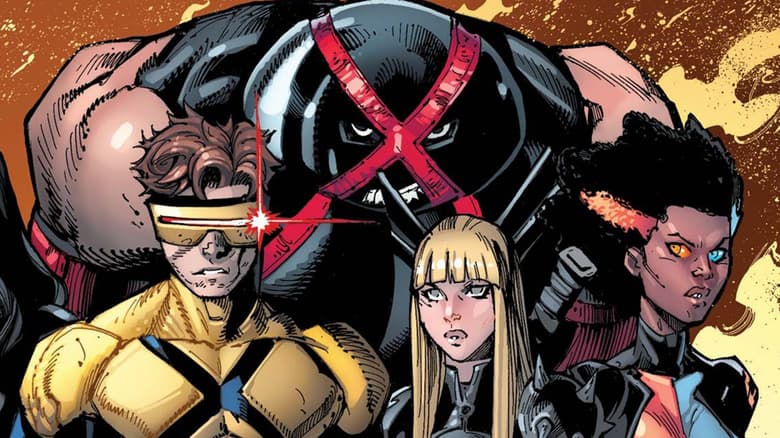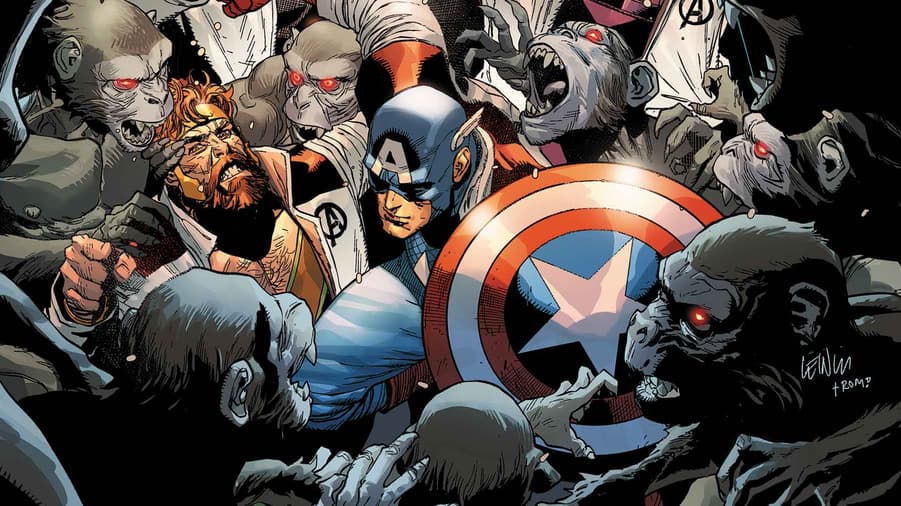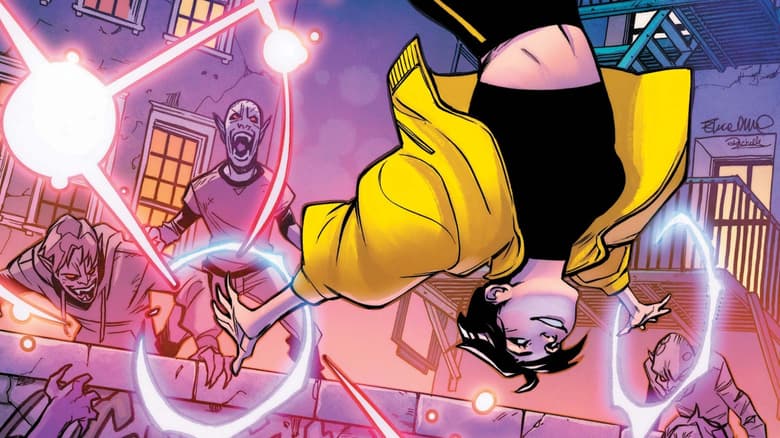'Marvel's Voices': Paul Bae Reminds Us That We Can All Fly
Award-winning producer and author Paul Bae celebrates Asian stories by Asian creators in 'Marvel's Voices: Identity'!
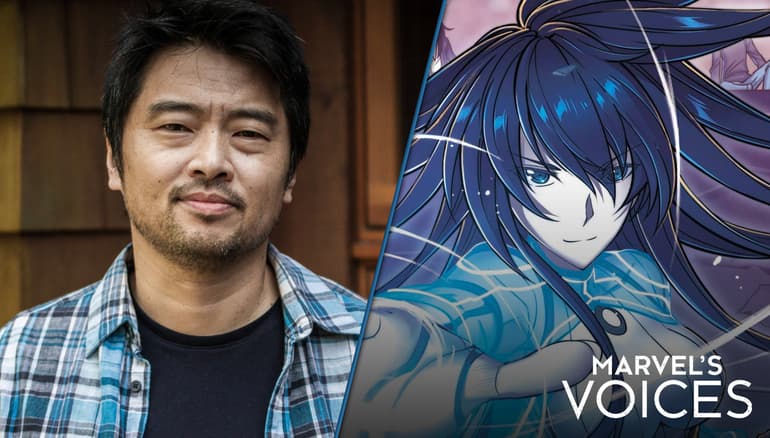
"Flight is for white people. Super-strength is not for Asians. Super heroes come to rescue people like me, but they’re never me." — Paul Bae, Age 7
It was 1976. Mississauga, Ontario. I was 7 years old when the neighbourhood kids voted me captain of our imaginary pirate ship one day at the local playground. I was elated. In our lower-middle-class district, that meant that in the eyes of my peers, I was the ass-kickingest of the ass-kickers. In times of nautical strife, whatever dangers our young minds could throw at ourselves, they would put their collective trust in me. It was quite the honour.
Then my friend’s mother interrupted our play session by informing me that, “captains are never Chinese.” I told her I was Korean but to her, that was beside the point. She calmly and patiently explained that if I paid closer attention to stories and television shows, I would have noticed that captains of ships are always white. I remember being confused, but this was an adult educating me on things of which I was not aware. So I climbed down from our jungle gym/pirate ship while her daughter took over as captain (even though none of us voted for her).
That was the day I learned I was not white. I had always had a hunch something was different about me, but I was too young to fully allow that truth to wash over me. I didn’t even know what white was until that day. But I started to notice the differences, the things that set me apart. My grandmother did not speak English. Our house smelled differently, likely from the kimchi and Korean stews constantly being heated in the kitchen. And my father didn’t know how to teach me hockey like the other fathers on our block. My friend Carl’s father had to show me how to skate and handle a stick on the pond that covered the field across the street.
And when you are a 7-year-old boy, suddenly learning that you are not like other boys is a destabilizing experience. I felt unmoored and needed something to attach my identity to or risk floating away.
That is when my friends got into comic books. One series in particular: Fantastic Four. I don’t recall exactly who brought them over to my house (probably Joey — Joey always stole stuff from his older brother to share with us despite the constant retributive ass whuppings), but I stared at those covers, slowly turned the pages, allowing the images to seep into my brain to forever find a home there. I was mesmerized by the Galactus trilogy, the vibrant Jack Kirby artwork, the unimaginable stakes.
But what I fell in love with was the Thing’s pain. Ben Grimm had returned from space forever changed, ugly in the eyes of his fellow citizens. But this orange monster was a hero, even if many people couldn’t see it.
Then came my next comic obsession: the Hulk. Those comics landed in my lap just as the original TV series launched on televisions across North America. Banner’s sense of alienation and loneliness became something like a source of power in my eyes. It was as though my weakness was transformed into my power. The qualities that made me different made a difference.
Then came the X-Men. Daredevil. Iron Man. Spider-Man. And a pattern built itself like a web in my psyche: This is what heroes look like. They were all different and often castigated for it, but they were different to an acceptable degree due to one crucial element: all of them were white. And that early lesson sunk its way deeper into my psyche: I was different; super heroes were set apart. These are not the same thing.
And in this way, heroism was equated with whiteness to my adolescent, developing mind. White people are the ones who can fly, who have super-strength, who are burdened with the task of righting wrongs. Asians had martial arts. We had Bruce Lee — nearly superhuman in his abilities, but considered foreign at the time.
This is why I am honoured to be invited to contribute an introduction to this collection of Asian stories by Asian creators in MARVEL'S VOICES: IDENTITY (2022). As a former public educator, my hope is that you pass this on to your children, your nieces and nephews and your neighbours’ kids, so that they can see heroes like Jubilee, Shang-Chi and Aero written and drawn by incredible creators like Christina Strain, Gene Luen Yang, Marcus To, Alyssa Wong and Whilce Portacio (to name only a few). My wish is that these stories be woven into their subconscious so that the ceilings on their dreams vanish.
I only have one regret: I wish that 7-year-old Korean kid at that playground in Mississauga had grown up with these stories. Maybe it wouldn’t have taken so long for him to realize that we can all be heroes, no matter what we look like.
We can all fly.
Pick up your copy of MARVEL'S VOICES: IDENTITY (2022) now, as well as the newest issue of MARVEL'S VOICES: IDENTITY (2022) #1, on sale this week from 5/18!
PAUL BAE — a former high school English teacher and stand-up comedian — is an author (You Suck, Sir) and award-winning audio drama creator-producer of The Black Tapes and The Big Loop. Paul is the director of Marvel Entertainment’s critically acclaimed hit series Marvels. Paul currently has two original TV series in development.
You can read more essays on Celebration of Legacy from Marvel's Voices, available exclusively on Marvel.com!
